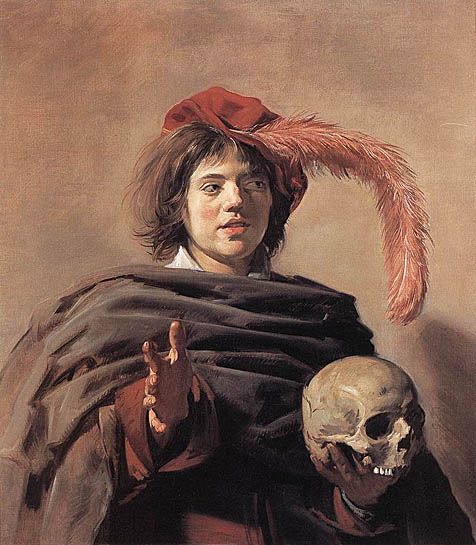On Friday, the Rogue Shakespeare Company finished its run of Marlowe’s Dr. Faustus with a midnight performance at the Blackfriars Playhouse. Coffee and donuts enticed the crowd to come out for this unusually scheduled performance. Stellar performances and showmanship all around kept the audience engaged and awake past 2:00 AM.
The midnight atmosphere lent a sense of informality as well, helping the audience “play along” in improvisational sections. And when the demonic apparitions appeared onstage, well—it just wouldn’t have had the same effect if it had been performed in the light of day. If there’s a play that you should see at midnight, it’s Dr. Faustus.
The “Rogues” are this year’s MFA company, and their theme is a “Season of Treason.” Their season features plays starring traitors and exploring the many aspects of human sin. Macbeth, The Insatiate Countess, Richard II, Fuente Ovejuna, and Dr. Faustus give us a colorful range of regicides, adulterers, angry mobs, and worse. The question these plays and this season ask is: Can these traitors be redeemed?
Dr. Faustus is the most literal depiction of this question. Can Faustus repent? Mephistopheles, the Seven Deadly Sins, and various demons stalked across the stage on Friday to laughter, applause, and horror. While they might entertain, their goal is to drag Faustus to Hell at the end.
Charlene Smith’s performance as Dr. Joan Faustus gave us a non-traditional picture of Faustus. Re-gendering Faustus was a smart casting choice that played to the Mary Baldwin University women’s audience. The college women portrayed onstage were directly relatable to many people in the audience that night. In one scene, her line, “If it be good enough for man, it is good enough for me” took on a whole new implication.
This Faustus was also quite young, which made a great deal of sense for the character. Joan Faustus was eager, almost naïve, at the beginning—full of knowledge but lacking wisdom. There was the sense that she had achieved so much so young, and let it go to her head. This production saw Dr. Joan Faustus change from an eager young student to a tired, world-weary, and cynical woman. By the end, her youthful exuberance had been replaced by an air of desperate exhaustion.
The question in the last part of the play still remains: Can Faustus repent? This Faustus lived long enough to recognize that she needed to. However, the tragedy of Dr. Faustus is that her character development is cut short. We want Faustus to be saved, because she’s like us. However, she doesn’t give herself enough time to mature to a point where she is wise enough to save herself.
The ending of this production was absolutely eerie. Throughout, the demons were represented by masked figures, usually shapeless forms wrapped in fabric. By the end, it was just Faustus on an empty stage—no more illusions, no more magic. The audience could not see the demons tormenting her, but she could. The trap in the stage opened, and we could hear faint screams and cries from “Hell.” Faustus was “dragged” into the pit by invisible arms. When she disappeared from sight, the screaming changed to celebratory shouts and demonic cheers.
The midnight showing of Dr. Faustus was a fantastic experience. This production made bold choices and pulled them off to great success.




